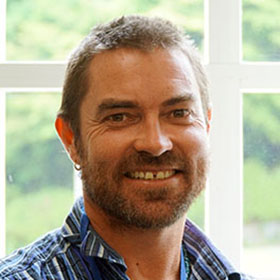The third lecture of the Global Carrier Lecture Series was held during independent study classes, which was third and fourth periods, as one of classes of the World Studies and the Global Carrier Lecture Series.
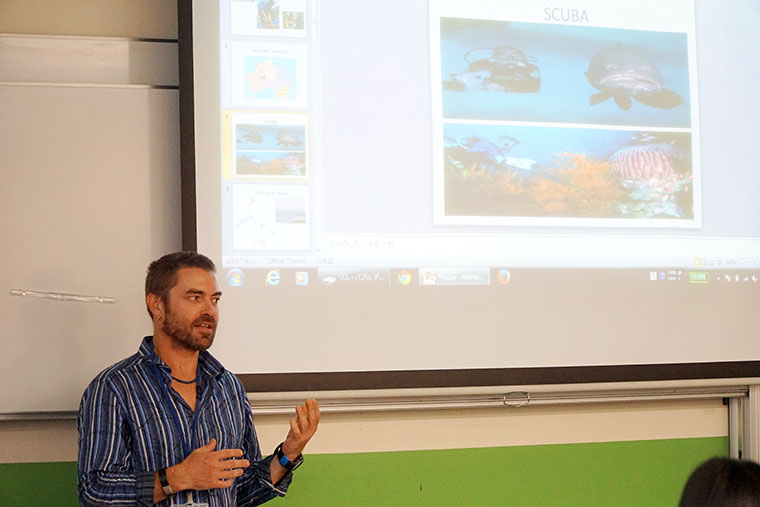
The theme was “human rights” and “international cooperation.” Damian Keyte, who was a director at the NPO “It’s Not Just Mud,” talked about what is volunteerism and what it brings, based on his experience in reconstruction work after the Great East Japan Earthquake.
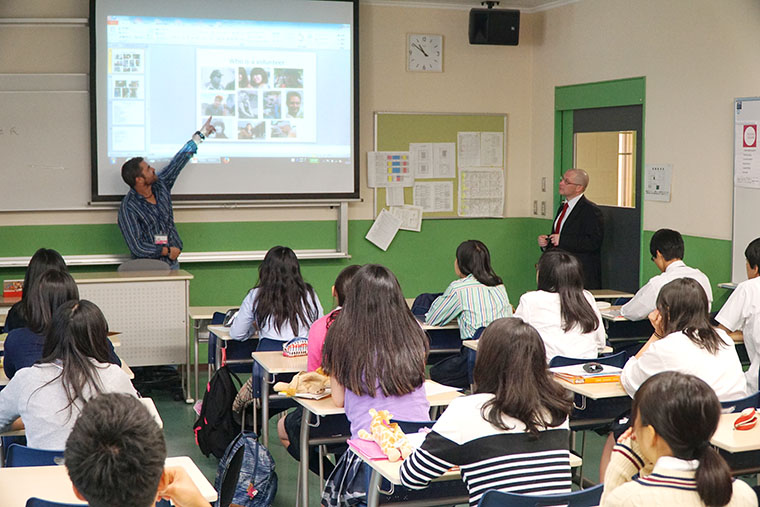
At the beginning, he showed pictures of different people of different ages, nationalities and careers, Damian introduced them saying ‘everyone here is a volunteer.’Then, he asked students whether they had volunteer experience, and expressed his underlying idea: “You can do anything. For example, you can trim branches of trees in your neighbor’s yard. It’s one type of volunteer activity.”
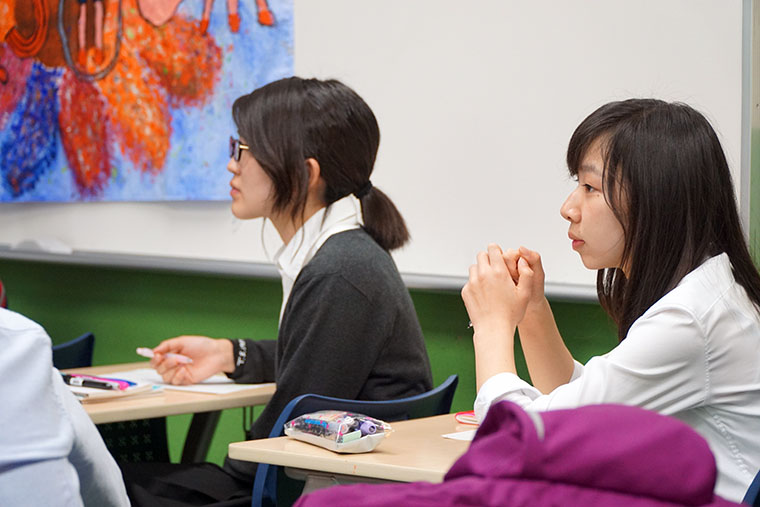
Then, Damian introduced himself and explained how, in the Australian town where he was raised, it was usual that all residents helped each other doing things like fighting wildfires together.
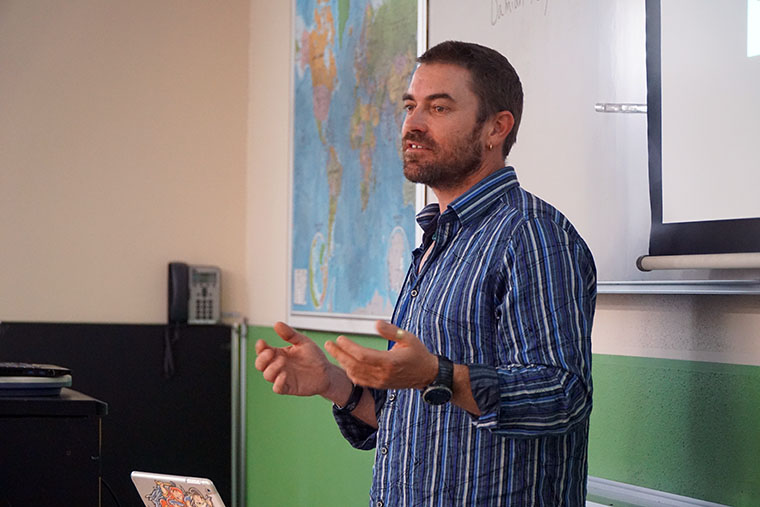
After leaving home he went to the Philippines where he worked as an underwater photographer. He was once employed in shooting a documentary film by the Dutch government and experienced life helping other people. He felt that it suited him very much. He claimed that this life was most attractive to him though he wasn’t paid a lot of money.
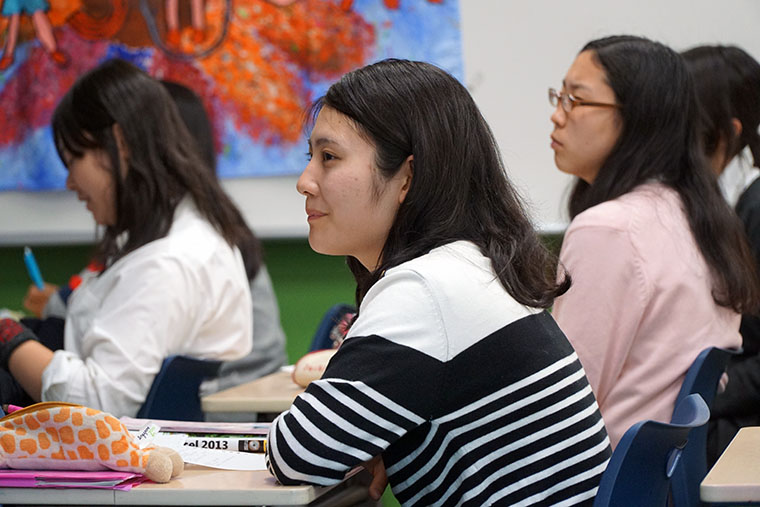
Damian spoke in a casual manner saying things like “My hometown is very rural!” and “I never wear a suit.” His casual sense of humanity showed an honesty and lifestyle which everyone was drawn to.
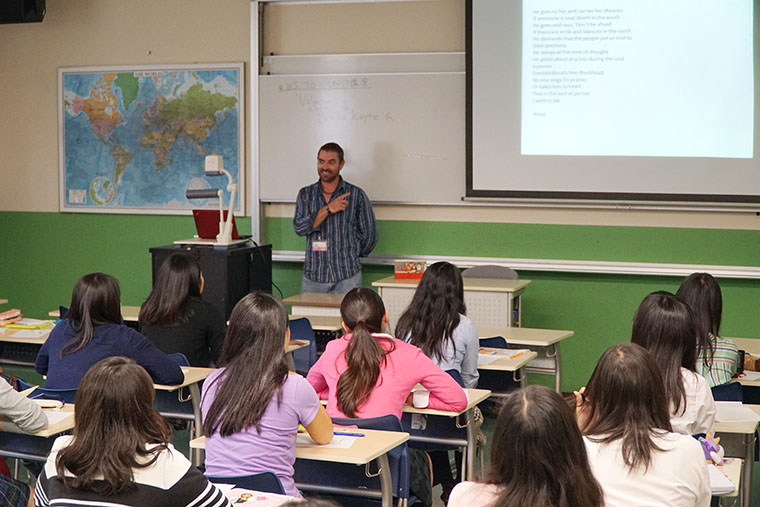
Then, Damian introduced the poem “Ame nimo makezu” by Kenji Miyazawa that was translated into English. He said that it had something in common with a spirit of volunteerism, with compassion being a large part. He then began to talk about the Great East Japan Earthquake and reconstruction work after it.
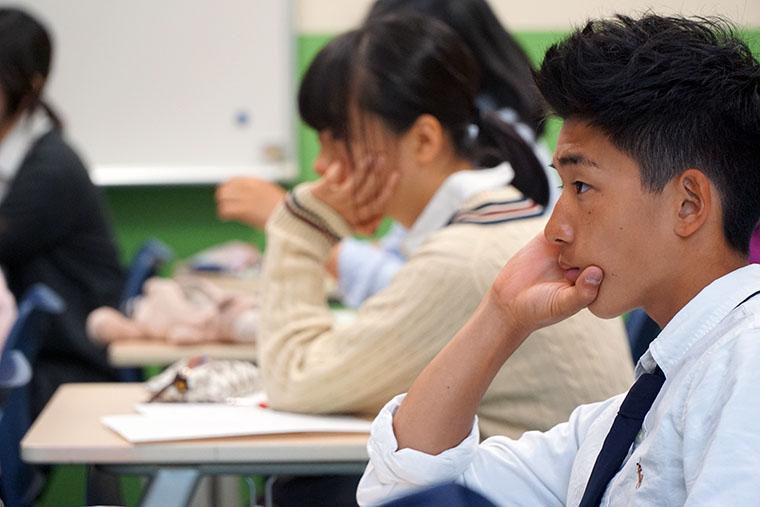
“Where were you at that time?” he asked, and each student thought about their circumstances which focused their minds on the earthquake.
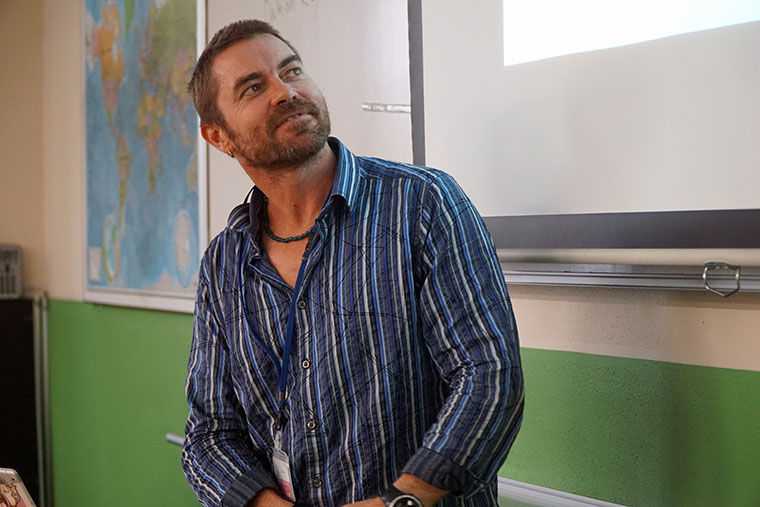
Damian told about his activities centered around Ishinomaki City: meeting with people from across Japan and around the world and the history of the growth of “It’s Not Just Mud”—It began when he called for people to join more effective volunteer activities—his message behind the NGO’s name and the changes in consciousness of the participants. The students realized that the positive results came from “voluntary actions.”
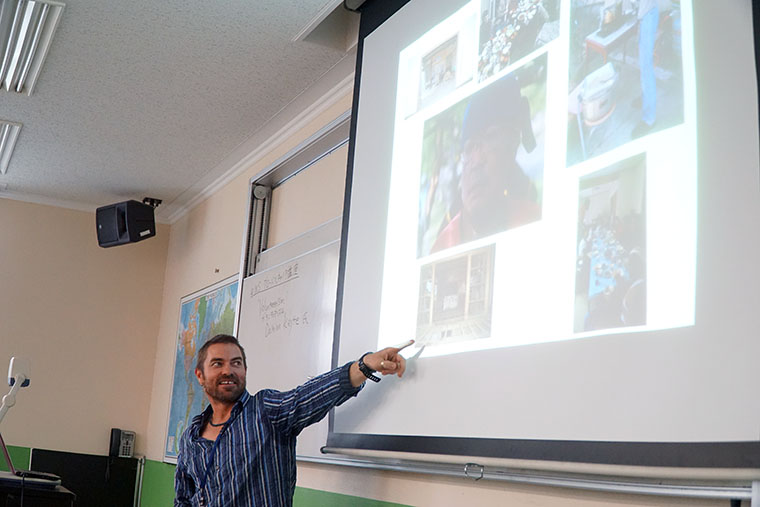
After the break, the students watched a documentary video on the experiences of local people in Ishinomaki City. They couldn’t take their eyes off the shocking scenes and stories, and were overwhelmed by the vividness of the facts.
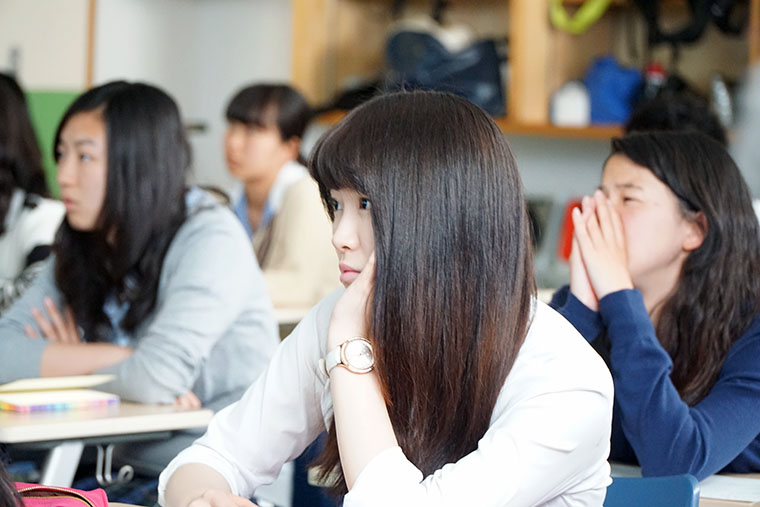
Then, the students had a discussion. It was conducted by Peter, an English teacher. The students were divided into groups of four or five. They remarked on Damian’s speech and the video, and expressed their opinions.
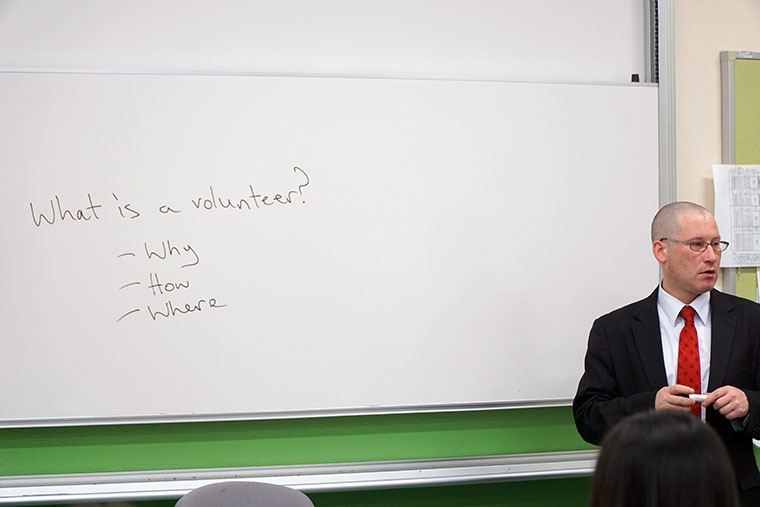
The theme of the discussion was “What is a volunteer? —Why —How —Where.”
Through the discussion on volunteerism, the students developed a better understanding of what they were interested in and deepened their way of thinking.
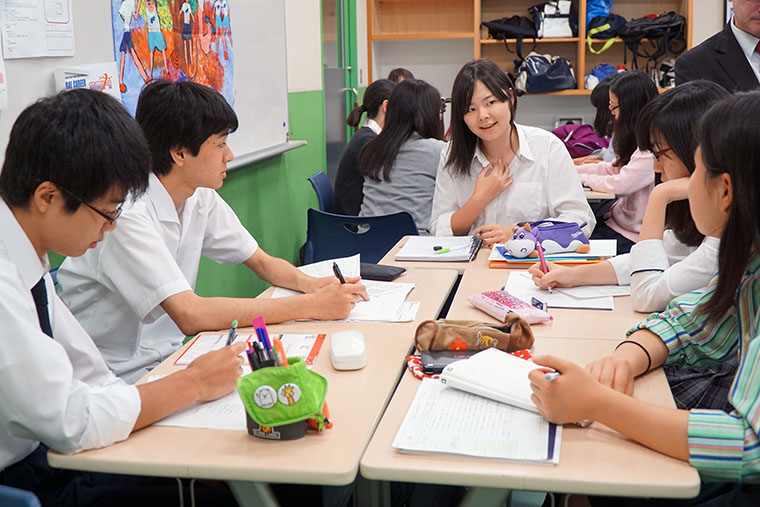
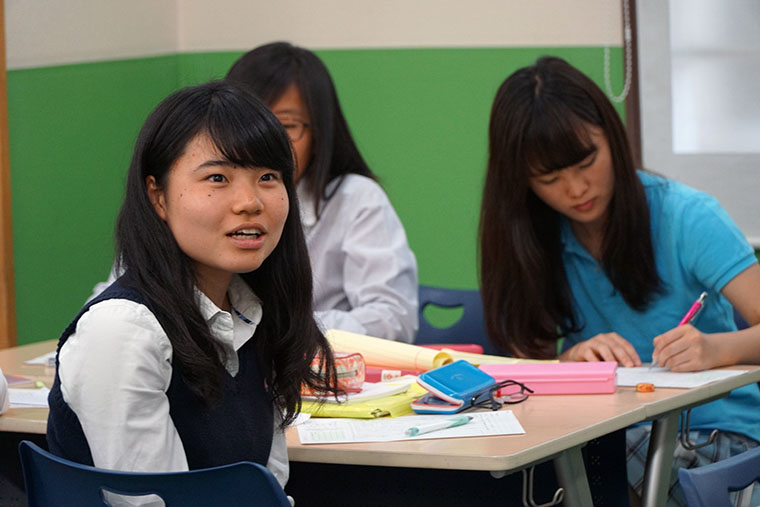
After each group delivered its opinion, Peter asked, “From this, do you think you’ve changed your mind about volunteer work?” Most of the students raised their hands to indicate that they had.
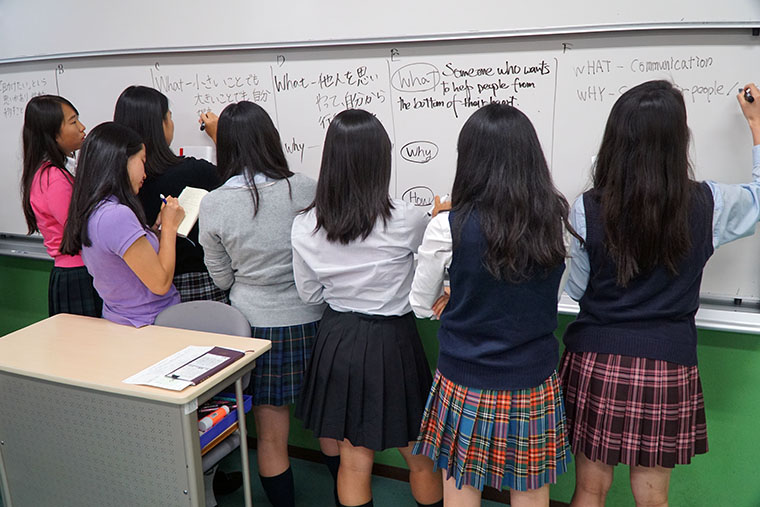
Finally, Damian gave a message to the students, “No matter what answer you found today, they are all correct.
The important thing is to understand mutual aid and volunteerism.” The students all showed their appreciation with applause.
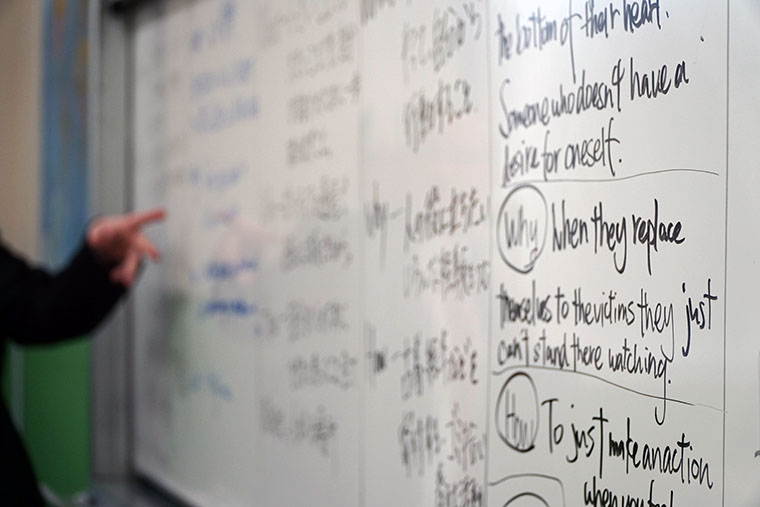
When hearing about “international cooperation,” we tend to think that it is always conducted overseas. However, it is even practiced “in Japan” by foreigner residents. Through the lecture, the students were able to understand volunteer work from the point of view of a foreigner, and were also able to develop a deeper interest in it.




